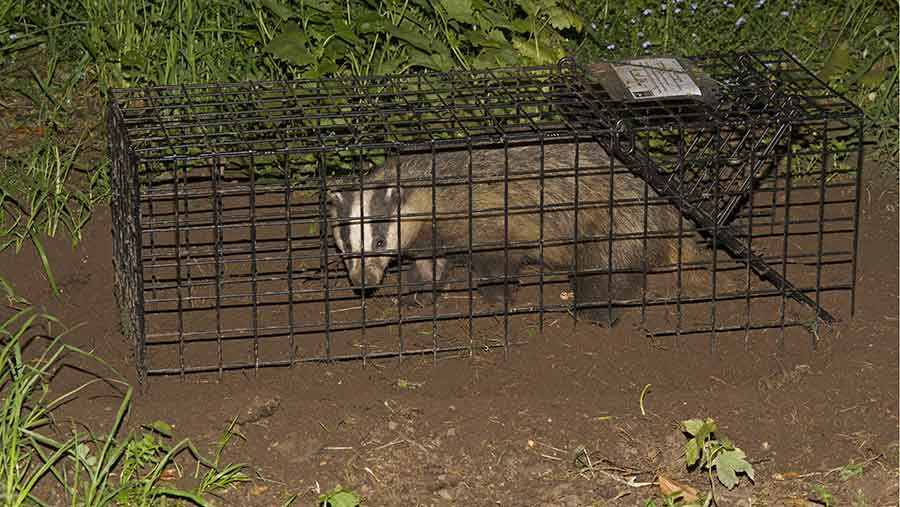Marksmen met badger culling targets in all pilot counties
 © FLPA / John Hawkins/REX Shutterstock
© FLPA / John Hawkins/REX Shutterstock Badger-culling operations in Somerset, Gloucestershire and Dorset were all successful in meeting their targets, Defra has announced.
Figures released show 432 badgers were culled by shooting or cage trapping in west Gloucestershire this summer. The minimum target was 265.
In Somerset, where 55 was the minimum target, 279 badgers were killed. And in the new pilot county of Dorset, 756 badgers were culled against a minimum target of 615.
See also: Devon farmer’s daughter shares distress over TB losses
In a statement to the government, Defra secretary Liz Truss said the 25-year TB eradication strategy was “delivering results”.
Ms Truss added: “The chief vet’s advice is that the results show industry-led badger control can deliver the level of effectiveness required to be confident of achieving disease-control benefits.
“The government will consider applications to control badgers over a wider number of areas next year.”
Ms Truss stressed that bovine TB remains the “greatest animal threat to the UK”, costing the taxpayer £100m each year.
The number of animals slaughtered as a result of bovine TB rose by 25% in Wales and 6% in England in the 12 months to September 2015, Defra figures show.
The total number of cattle slaughtered as either a reactor, inconclusive reactor or direct contact across the whole of Great Britain rose to 34,836 in the 12 months to September 2015, compared with 32,049 in the previous 12-month period.
The number of new herd incidents also rose by 9% in Wales and 1% in high-risk areas of England.
In edge areas, however, the number of new incidents decreased by 14%, but the overall incidence rate increased.
“The low-risk area, covering more than half of England, is on track to achieve officially TB-free status by 2019. This would be the first time anywhere in England has enjoyed this status,” said Ms Truss.
To further improve cattle movement controls, the government plans to introduce statutory post-movement testing in the low-risk area next year “to reduce the risk of importing TB-infected animals from higher-risk areas”.
Defra has overseen the completion of the first year of six private badger vaccination projects, funded under the 2014 Badger Edge Vaccination Scheme.
But like Wales, it has suspended its badger vaccination schemes due to an ongoing worldwide shortage of the BCG vaccine and the need to prioritise use in humans.
Meanwhile, anti-cull campaign groups, including Stop the Cull and the Badger Trust, insist that culling badgers will make no meaningful contribution to cutting TB rates in cattle.
They urge Defra to stop the culls and focus on vaccination.
Dominic Dyer, chief executive of the Badger Trust, said: “The government is attempting to bury bad news by releasing the 2015 badger cull figures on the day of the Christmas recess in Westminster.
“Despite claiming all the cull contractors have met their targets for 2015, there is no evidence the killing of badgers is reducing the level of bovine TB in cattle.
“The claims by the NFU and pro-cull politicians that badger culling is delivering a significant reduction in bovine TB are looking increasingly bogus and the exact opposite of the truth.”
He added: “£20m of taxpayers’ money has been spent killing thousands of badgers and yet cattle TB in Somerset is on the rise.
“To put this in context, TB rates in cattle outside of the cull zones have been dropping consistently for five years due to improved testing, biosecurity and movement controls.”
